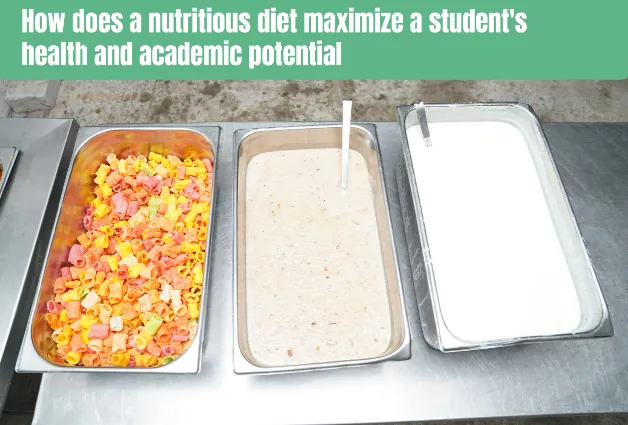Grow and develop properly
Nourishing little ones with a well-rounded diet full of ingredients from every food category ensures they receive an ample supply of essential nutrients for optimal health. It’s important to keep in mind that kids have ever-changing appetites, influenced by their age, growth patterns, and physical activity, so serving portions that are suitable for their needs is crucial.
Improve their concentration and focus
Nourishing meals benefit a child’s academic performance by boosting their energy levels and concentration. Consuming sugary food like soda and candies may give a sudden burst of energy, but it will inevitably lead to a crash of energy, making it hard for the child to stay focused in class. Incorporating foods that are rich in protein, healthy fats, and complex carbs such as nuts, seeds, and whole grains will provide long-lasting energy, allowing children to remain alert and attentive throughout the day.
Boost their immune system
Eating a nutritious diet can assure that children stay healthy by boosting their immune systems. Fruits and vegetables are rich in vitamins and minerals that are essential for a healthy immune system, fruits like oranges, kiwis, and strawberries are rich in vitamin C, which can help reduce the duration and severity of colds and other infections. Whole grains like oatmeal and whole wheat bread provide energy and are a good source of fiber, which can improve digestion and reduce the risk of certain diseases. By incorporating a variety of nutritious foods into their diet, students can support their immune systems and improve their overall health.
Improve their physical and mental health
Nourishing a child’s body with the right nutrients can do wonders for their health, both physically and mentally. A research report featured in the Journal of School Health, United States revealed that students who maintained a healthy diet had better concentration and energy levels, and were less likely to miss school due to sickness compared to their peers who consumed an unhealthy diet.
A diet filled with fruits, vegetables, and omega-3 fatty acids can enhance mood, reduce the likelihood of depression and anxiety, and sharpen cognitive abilities. On the flip side, a diet high in processed foods, sugary drinks, and unhealthy fats can increase the chance of mental health issues. A balanced and healthy diet rich in protein, vitamins, and minerals, also improves the quality of their sleep and maintains excellent physical and mental health, which has a direct impact on their enhanced academic performance and overall well-being.
Prioritizing a well-balanced and healthy diet for students is essential in fostering their physical, mental, and academic well-being. By embracing nutritious meals, schools, parents, and caregivers can collectively contribute to students’ optimal growth, concentration, immune strength, and overall well-being. These dietary choices are fundamental pillars in laying the foundation for a successful and vibrant academic journey.


